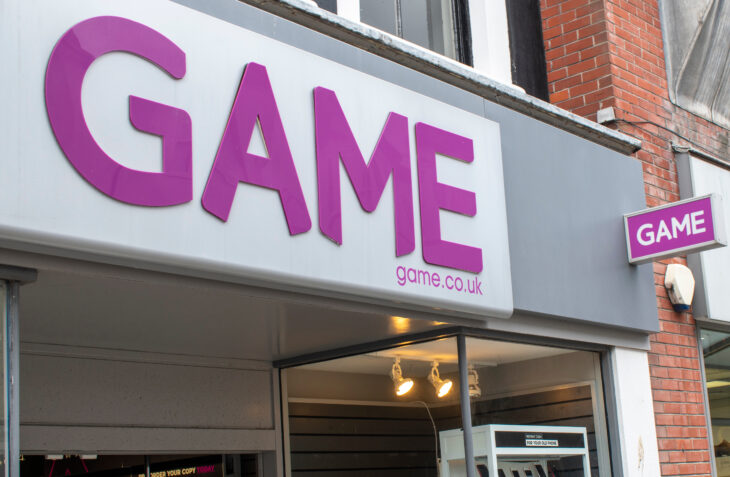
Image: AVM Images/Shutterstock
UK video game retailer GAME has experienced significant turbulence in recent months, reportedly losing a substantial portion of its head office workforce following its integration into parent company Frasers Group in August 2024. According to industry reports, the downsizing has left the company struggling with operational inefficiencies, stock shortages, and diminished customer service capabilities.
Sources suggest that approximately 80% of GAME’s head office staff have been laid off, reducing the department to around 20 employees from its previous count of over 100. This dramatic reduction has reportedly left store managers without dedicated area managers, requiring them to directly coordinate with the already strained head office team.
Since being acquired by Frasers Group, formerly known as Sports Direct, in 2019, GAME has undergone a gradual transformation. Many standalone stores have closed, replaced by smaller concessions within Sports Direct outlets. 2024 has seen further shifts, including the discontinuation of GAME’s long-standing pre-owned business, the cessation of physical currency card sales, and the termination of in-store pre-orders for new releases.
The operational restructuring appears to have exacerbated issues in stock management and logistics. Reports indicate frequent delays in delivering new game releases and hardware, with some key titles, such as Call of Duty: Black Ops 6 and Silent Hill 2, arriving late or in insufficient quantities. Frasers Group’s leadership, reportedly inexperienced in gaming industry logistics, has struggled to align stock orders with release schedules, leading to widespread shortages.
Staff at GAME have expressed frustration with the shortages, stating that popular titles and new hardware often arrive in numbers too small to meet demand, forcing them to turn away more customers than they serve. Even high-profile launches like the PS5 Pro have been affected, with stores receiving significantly fewer units than expected.
As GAME continues to grapple with these challenges, the long-term viability of the retailer remains uncertain. The changes under Frasers Group point to a broader shift in strategy, but the apparent lack of industry expertise and resource allocation raises questions about the company’s ability to remain competitive in an evolving market.